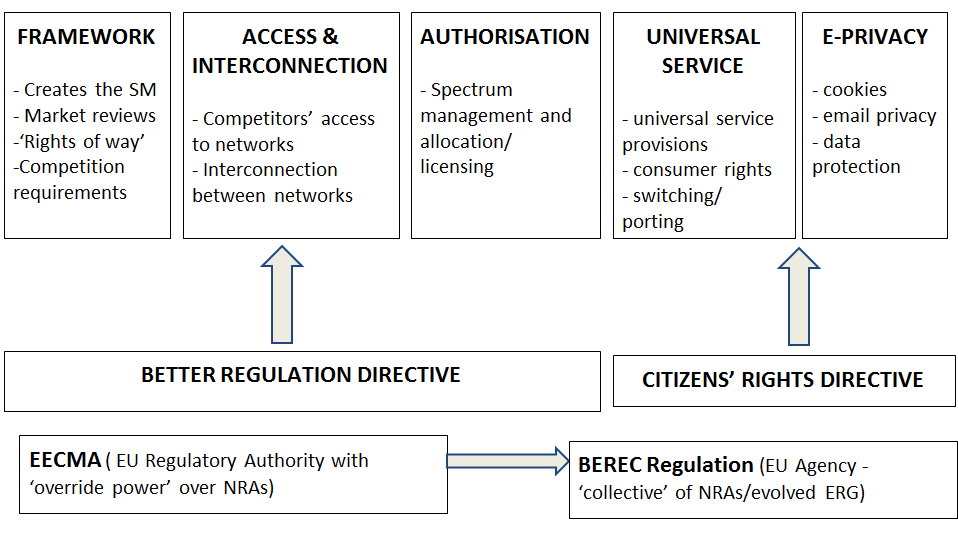European Commission kicks off review of the Telecoms Framework
The European Commission opened its review of the regulatory framework for telecoms and published a consultation on internet speed and quality post 2020 today. The review was expected as it comprises the 2nd Pillar of the Digital Single Market package announced in May.
The review of the Framework, which governs must of the Europe’s approach to telecoms regulation, aims to create the right conditions for digital products, networks and services to flourish. Although strictly speaking a REFIT exercise – analysing the impact of the 2009 changes to the Framework – the aim is to ensure that Europe’s telecoms rules will be fit for purpose in the converged future that is swiftly approaching.
The Framework is made up of several Directives and Regulations as outlined in the diagram below (h/t @DCMS).
These rules go some way to effectively determining the tools in Ofcom’s regulatory toolkit, which is itself undertaking a strategic analysis of the state of market in the UK. It will be interesting to see if Ofcom determine that they need additional powers and lobby for them through BEREC.
Alongside this Review the Commission have published a consultation on future internet speed and quality beyond 2020. The consultations asks respondents to discuss:
- which of their future products and services will depend on connectivity;
- needs related to downloading and uploading data,
- required speed and other quality features like latency,
- ubiquitous connectivity,
- security
It is appropriate that the Commission is asking questions about quality as well as focusing on speed (which is just one of the determining factors of quality). The review looks to be both the precursor to an update or extension to the Digital Agenda Broadband Targets and will influence decisions related to the various structural and connectivity funding pots. Whether this is the precursor to the rumoured move away from the formal position of technology neutrality remains to be seen.
Both consultations are open for 12 weeks and UK industry and Government will need to carefully consider the opportunities and potential pitfalls that they contain.







